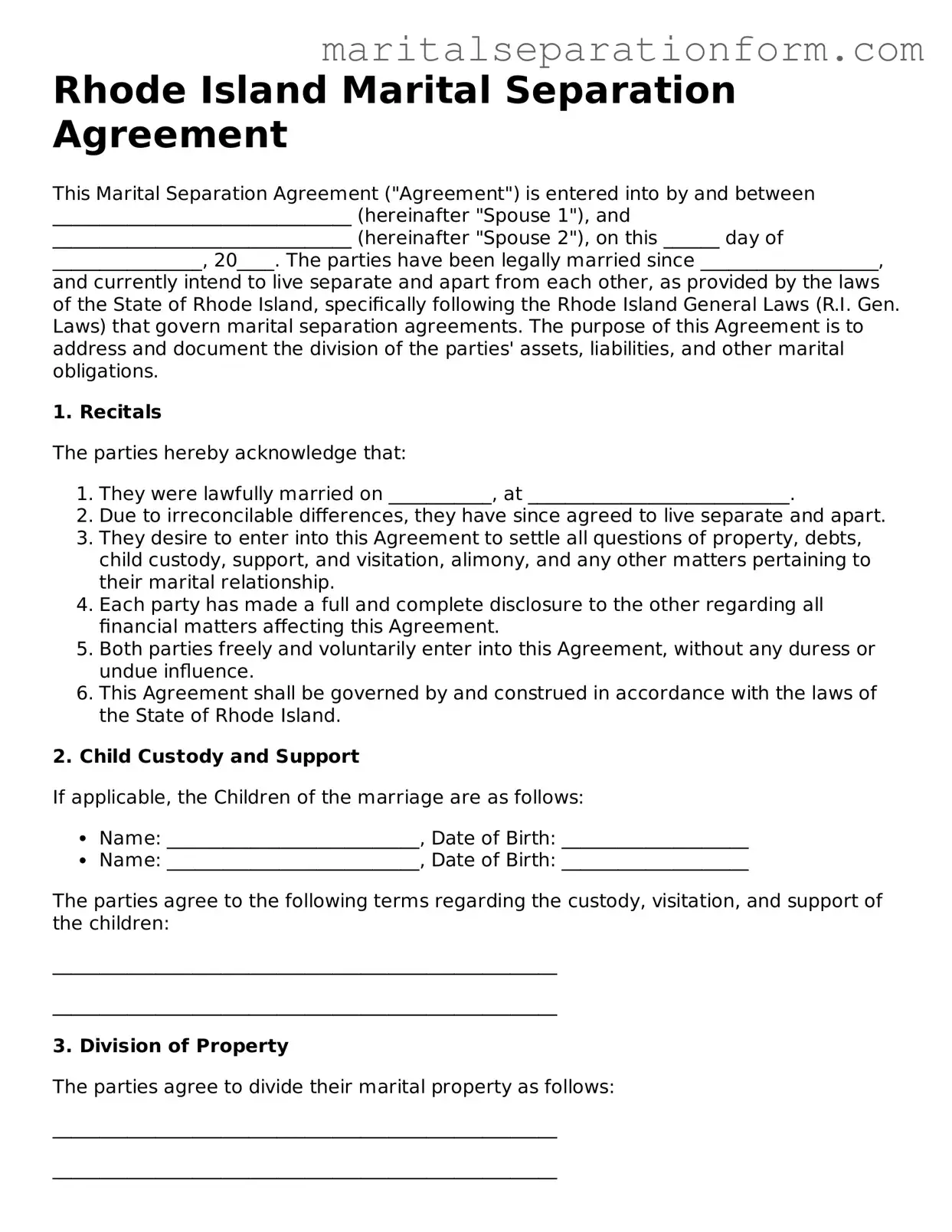Rhode Island Marital Separation Agreement
This Marital Separation Agreement ("Agreement") is entered into by and between ________________________________ (hereinafter "Spouse 1"), and ________________________________ (hereinafter "Spouse 2"), on this ______ day of ________________, 20____. The parties have been legally married since ___________________, and currently intend to live separate and apart from each other, as provided by the laws of the State of Rhode Island, specifically following the Rhode Island General Laws (R.I. Gen. Laws) that govern marital separation agreements. The purpose of this Agreement is to address and document the division of the parties' assets, liabilities, and other marital obligations.
1. Recitals
The parties hereby acknowledge that:
- They were lawfully married on ___________, at ____________________________.
- Due to irreconcilable differences, they have since agreed to live separate and apart.
- They desire to enter into this Agreement to settle all questions of property, debts, child custody, support, and visitation, alimony, and any other matters pertaining to their marital relationship.
- Each party has made a full and complete disclosure to the other regarding all financial matters affecting this Agreement.
- Both parties freely and voluntarily enter into this Agreement, without any duress or undue influence.
- This Agreement shall be governed by and construed in accordance with the laws of the State of Rhode Island.
2. Child Custody and Support
If applicable, the Children of the marriage are as follows:
- Name: ___________________________, Date of Birth: ____________________
- Name: ___________________________, Date of Birth: ____________________
The parties agree to the following terms regarding the custody, visitation, and support of the children:
______________________________________________________
______________________________________________________
3. Division of Property
The parties agree to divide their marital property as follows:
______________________________________________________
______________________________________________________
4. Division of Debts
The parties agree to divide their marital debts as follows:
______________________________________________________
______________________________________________________
5. Alimony
______________________________________________________
The decision regarding alimony, including the amount and duration, is as follows:
______________________________________________________
6. Entire Agreement
This Agreement constitutes the entire agreement between the parties pertaining to the subject matter contained herein and supersedes all prior and contemporaneous agreements, representations, and understandings of the parties. No supplement, modification, or amendment of this Agreement shall be binding unless executed in writing by both parties.
7. Acknowledgment
Each party hereby acknowledges having read and understood this Agreement and agrees to all its terms and conditions. By signing below, the parties have entered into a binding agreement.
IN WITNESS WHEREOF, the Parties have executed this Agreement on the date first written above.
______________________________ _______________________________
Spouse 1's Signature Spouse 2's Signature
______________________________ _______________________________
Spouse 1's Printed Name Spouse 2's Printed Name
______________________________ _______________________________
Date Date

